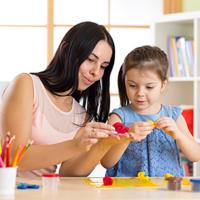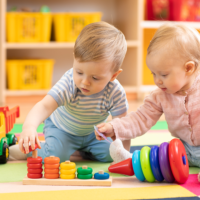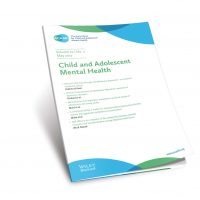behavioural problems
-

Contamination Bias and Child Maltreatment on Adolescent Behaviour Problems
In this Papers Podcast, Dr. Johnny Felt and Dr. Chad Shenk discuss their co-authored JCPP paper ‘Contamination bias in the estimation of child maltreatment causal effects on adolescent internalizing and externalizing behavior problems’. There is an overview of the paper, methodology, key findings, and implications for practice.
Read more -

Comparing findings from the random-intercept cross-lagged panel model and the monozygotic twin difference cross-lagged panel model: Maladaptive parenting and offspring emotional and behavioural problems
Open Access paper from JCPP Advances – ‘We examine associations between maladaptive parenting and child emotional and behavioural problems in identical twins aged 9, 12 and 16.’ Marie-Louise J. Kullberg (pic) et al.
Read more -

Mind the Missing NSE Gap: The Influence of Non-shared Environment on Symptoms of Behaviour Problems
In this Papers Podcast, Aga Gidziela discusses her JCPP paper ‘Explaining the influence of non-shared environment (NSE) on symptoms of behaviour problems from preschool to adulthood: mind the missing NSE gap’.
Read more -

How much do we really know about ‘Theraplay’ for young children?
‘Theraplay’ is an intervention that aims to enhance attachment, self-esteem and trust in others for children with behavioural, emotional or developmental difficulties. The intervention, founded on attachment theory,1 harnesses natural and playful interactions between caregivers and children to develop healthy and positive relationships.
Read more -

Is infant empathy linked with later externalizing problems?
Until recently, it has been assumed that young infants cannot feel empathy for others.1 However, emerging data suggest that this might not actually be the case.2 Now, Yael Paz and colleagues have examined empathy development during the first years of life, analysing data from 165 infants involved in a longitudinal, prospective study.
Read more -

Poor sleep quality in adolescence might contribute to poor psychological functioning
Sleep problems affect up to 25% adolescents and have frequently been associated with psychopathology. Now, Marije Vermeulen and colleagues have investigated whether short and/or problematic sleep truly contributes to psychological functioning.
Read more -

CAMH Editorial: Volume 20, Issue 4, November 2015
“Looked-after children – a perspective into a more resilient future” by Carmen Pinto & Matt Woolgar.
Read more